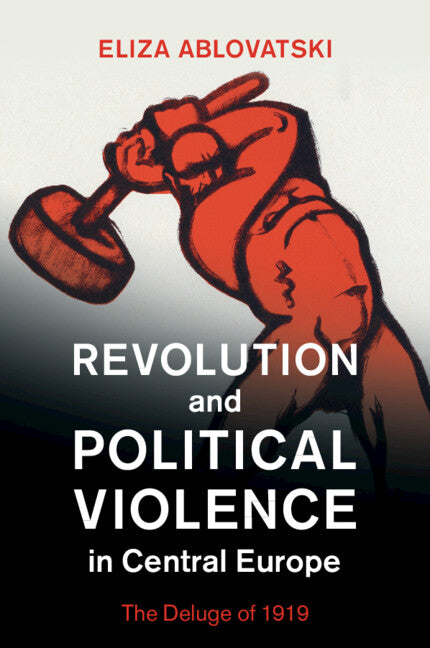Freshly Printed - allow 8 days lead
Couldn't load pickup availability
Revolution and Political Violence in Central Europe
The Deluge of 1919
Examines how narratives of the 1919 Central European revolutions promoted a violent counterrevolutionary culture in interwar Germany and Hungary.
Eliza Ablovatski (Author)
9781108978781, Cambridge University Press
Paperback / softback, published 23 March 2023
314 pages
22.9 x 15.2 x 1.7 cm, 0.459 kg
'The book can also be recommended to military historians in two other respects. First, it offers a detailed examination of the role of the Reichswehr and Horthy's National Army in meting out extra-judicial punishments against real and imagined revolutionaries, including women, as well as acts of retribution disguised within judicial and (emergency) legal frameworks (courts-martial, preventive detention and so on). Second, Ablovatski poses the question as to who volunteered to fight in the Red Guards.' Matthew Stibbe, International Journal of Military History and Historiography
In the wake of the First World War and Russian Revolutions, Central Europeans in 1919 faced a world of possibilities, threats, and extreme contrasts. Dramatic events since the end of the world war seemed poised to transform the world, but the form of that transformation was unclear and violently contested in the streets and societies of Munich and Budapest in 1919. The political perceptions of contemporaries, framed by gender stereotypes and antisemitism, reveal the sense of living history, of 'fighting the world revolution', which was shared by residents of the two cities. In 1919, both revolutionaries and counterrevolutionaries were focused on shaping the emerging new order according to their own worldview. By examining the narratives of these Central European revolutions in their transnational context, Eliza Ablovatski helps answer the question of why so many Germans and Hungarians chose to use their new political power for violence and repression.
Introduction
1. Central European roots of revolution
2. World war and world revolution
3. Rumor and terror: revolutionary script and political violence
4. Revolution on trial
5. Seeing red: dangerous women and Jewish Bolshevism
6. Remembering the world revolution
Conclusion.
Subject Areas: First World War [HBWN], Revolutions, uprisings, rebellions [HBTV], European history [HBJD]


